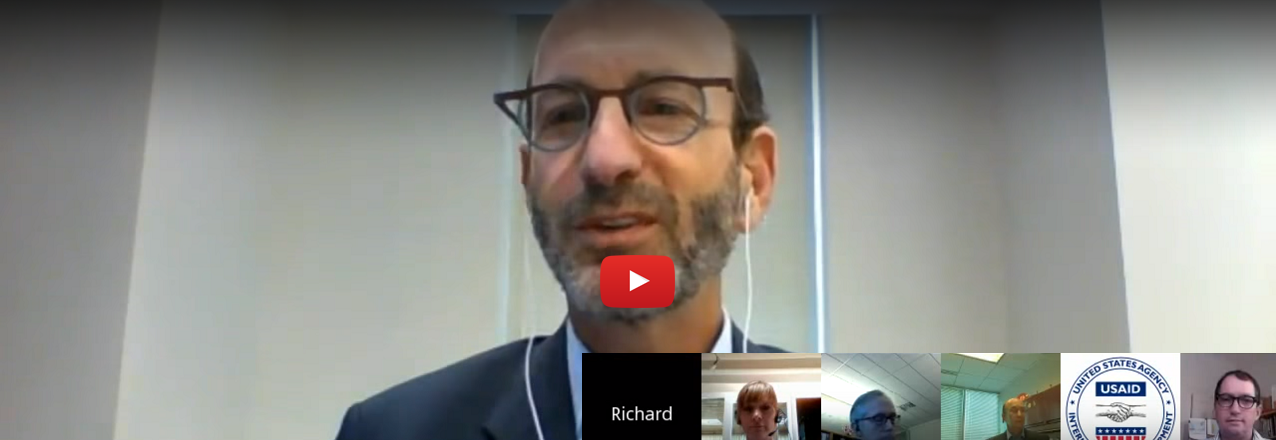The Legitimate Land Rights event on September 15 inspired a lot of online discussion and we were unable to answer all of the questions from the online audience during the event. Today, we are sharing our answers to some of the most interesting questions:
Question: It would be interesting to understand the international perspective on what constitute legitimate land rights; any thoughts?
Answer: As you might expect there is a rather wide spectrum of opinion about what constitutes a “legitimate” land right. International best practice holds that women have legitimate rights to land and resources as owners in their own right, through marriage or through inheritance, and that communities that hold recognized, traditional (or customary) rights to land and resources also have legitimate rights. Also at the international level, indigenous peoples are recognized to have important, and legitimate, rights to land and resources. However, there may be disagreement about which groups should be considered as “indigenous peoples.” There is less consensus on the status of slum dwellers and if they do, or do not, hold legitimate land rights.
Question: Legitimacy is an interesting term. Who determines legitimacy? Related to validity: what is valid information? This is a problem across scales and need to be incorporated into the idea of cross scale coherence.
Answer: What counts as a legitimate land right might be determined by national legislation, by international agreement, or by social norms and customs. As a result, the kinds of information that are required to determine legitimacy may include things like: traditional memory and oral evidence, formalized documentation found in cadastral offices (including certificates of occupancy/use and title deeds), or information collected by private efforts of civil society organizations. Crowd-sourced information about legitimate land holders may become an increasingly important font of material on the issue of legitimacy. While there is no global, standardized set of land rights information, if the Sustainable Development Goals include targets related to land standardized data will need to be collected to track progress towards goals of providing more secure rights to land to women and men (and legal entities).
Question: Are local legitimate land rights recognized when land was taken for state projects – abandoned – then offered to investors?
Answer: The answer to this question is context specific. Some investors will carry out appropriate due diligence and work to identify and recognize pre-existing legitimate land rights before an investment is made. In other cases, investors will not do this, or will not be guided by governments to do this, creating the potential for harm to local people and to the investor. The kinds of legacy issues this question points to are challenging and recent research on the topic provides helpful recommendations on how best to avoid harm. Please see here.
Question: For Kate Mathias of Illovo Sugar Ltd.: What can an investor possibly do in a situation where the government has leased land to the investor by saying it is unregistered and part of the public domain, but customary land users still claim it as “their” land in opposition to an official government decision?
Answer: It is a difficult situation as the community is effectively questioning the legitimacy of formal land rights as communicated by its government. Land use issues should be identified during the Environmental and Social Impact Assessment and if required it should be registered as a risk to the investment. The company should engage with the communities/stakeholders involved to try to establish if a mutually acceptable solution can be found perhaps by incorporating the customary land users into the supply chain or through meeting the needs of the community through other social support mechanisms. If however a mutual solution cannot be agreed then the company must make a decision around the risk to the investment and could potentially walk away from that land area and discuss alternatives with the government using the ESIA as proof of the risk.
Question: For David Grossman of International City/County Management Association: Will individuals accept property title “proxies” as legitimate land rights? How might engaging banks help?
Answer: Although tax declarations are not proof of ownership, many private individuals accept land title proxies for land transactions, such as sales and mortgages, as collateral for other transactions. For example, in the Philippines, government banks, Development Bank of the Philippines (DBP), and Land Bank accept them and some local governments recognize them absent the best proof of ownership. Land titles apart from tax declarations, tax receipts, and payments on property can also serve as proxies.


